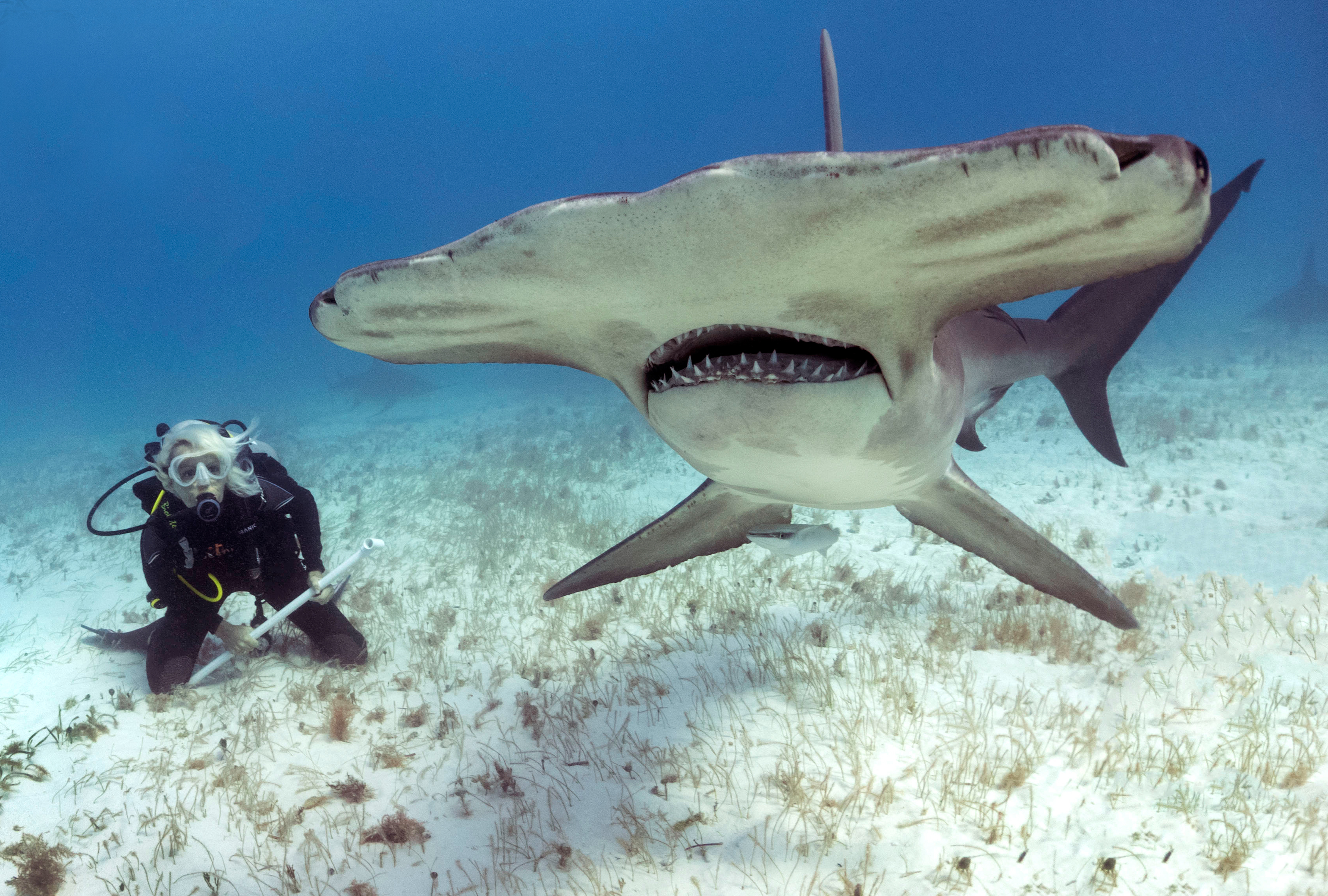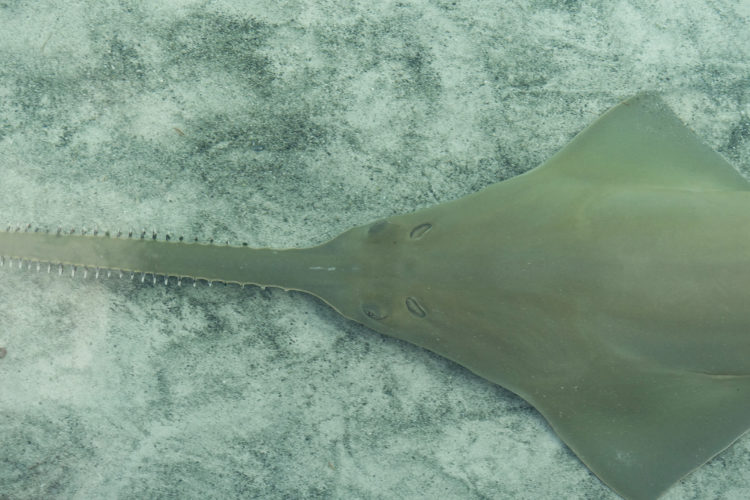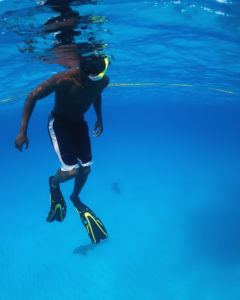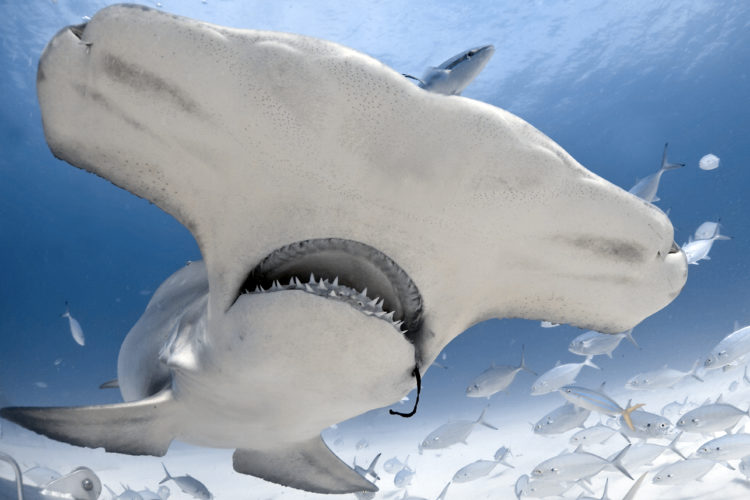We have much more to do and your continued support is needed now more than ever.
Education: Key Strategy for Shark Species Success

A study done by the IUCN Shark Specialist Group, published in early 2014, found that 25% of sharks and rays are threatened with extinction according to IUCN ( International Union for the Conservation of Nature) Red List criteria. Life history traits including late maturation, slow growth and few offspring, make sharks and rays particularly vulnerable to overfishing. In order to avoid extinctions, regulations in management and trade must occur.
Many of the species facing the greatest threats are not the most well known or charismatic, so our Sharks4Kids programs are aiming to provide more information about and focus on these particular animals. Most kids know great whites, tiger sharks and manta rays, but have never heard of a sawfish, chimaera or angel shark. The challenge is getting them just as excited about the more rare and lesser known species, which in many cases require a greater need for regulations and protections. These are not the species they see on Shark Week, nor have them gained celebrity status on social media, but it is critical for the world to learn about them. Knowledge is a key component in getting better laws and regulations put in place and it is very difficult to care about an animal if you don’t know it exists.
In learning about the more obscure species, students are also learning overall about the incredible diversity among sharks and rays.

One of our main focuses this year has been expanding our program to landlocked states and helping students and teachers understand our connection to the ocean, no matter where we live. We’ve been speaking to a lot of students in Kansas, Tennessee and are doing in person visits in Arkansas. Our lives are intertwined with the ocean every single day, so our actions have an impact. We always encourage students to learn about sharks and share shark facts. Driving home the understanding that these creatures are not man-eating monsters. Once we replace fear with facts, we can move forward and empower and encourage them to speak up. Students can use less plastic, organize a cleanup, read a shark book to younger kids or make a shark poster to share facts at school. Our focus is sharks, but the bigger picture is that we need to be global citizens striving to make our impact a positive one for the planet.
One of our proudest achievements regarding endangered species is the amount of awareness we’ve been able to spread regarding the threats sharks and rays are facing. Most people have heard of shark finning, but do not realize shark liver oil is used in cosmetics, vitamins and dog treats, all which can be purchased in the US. They do not realize the other names shark can be served as ( whitefish) or the issues of bycatch. These are all important aspects in better management and protection of endangered species. I know we are getting the message out there when I see stories like the 9 year old in Oklahoma doing a presentation on sharks for her class. I see hope in the next generation.
Education is crucial in the fight to save sharks and save our oceans.

If we are not aware of something, it is almost impossible to care about it, let alone take action to protect it. It’s remarkable to see how quickly a few factsand some beautiful images can change the way people perceive an animal. To see a shark swimming gracefully, instead of with jaws agape, catalyzes adifference response in most people and opens their mind to thinking differently. Unfortunately for sharks, the monster stigma is still heavily embedded in our society and has been for decades, so we are fighting against something with a very strong grip. Highlighting the incredible adaptations, diversity of species and true beauty of these animals is a critical component in the education process. At the heart of it is helping students understand sharks are more than just their teeth; they are smart, social and certainly not man-eaters.
Programs providing facts and education, allow for knowledge to spread from students to their teachers, families and friends, so we are actually reaching adults as well. This has the potential to create a ripple effect where parents now might think differently about the products they buy, use less plastic or even plan a trip to see sharks.

Overall, education allows us to show the reality of these fascinating creatures, highlight the threats they face and enlist the next generation of shark advocates to be their voice and make a difference.
About the Author
Jillian Morris is a marine biologist, shark advocate, scuba instructor, explorer and educator. She is the executive director of Oceanicallstars conservation media group and the creator of Sharks4Kids.
Eco-Schools USA is a K-12 program of the National Wildlife Federation focused on student-driven sustainability through leadership, STEM, action and community. Learn more and take action for wildlife species and the place they live.





















